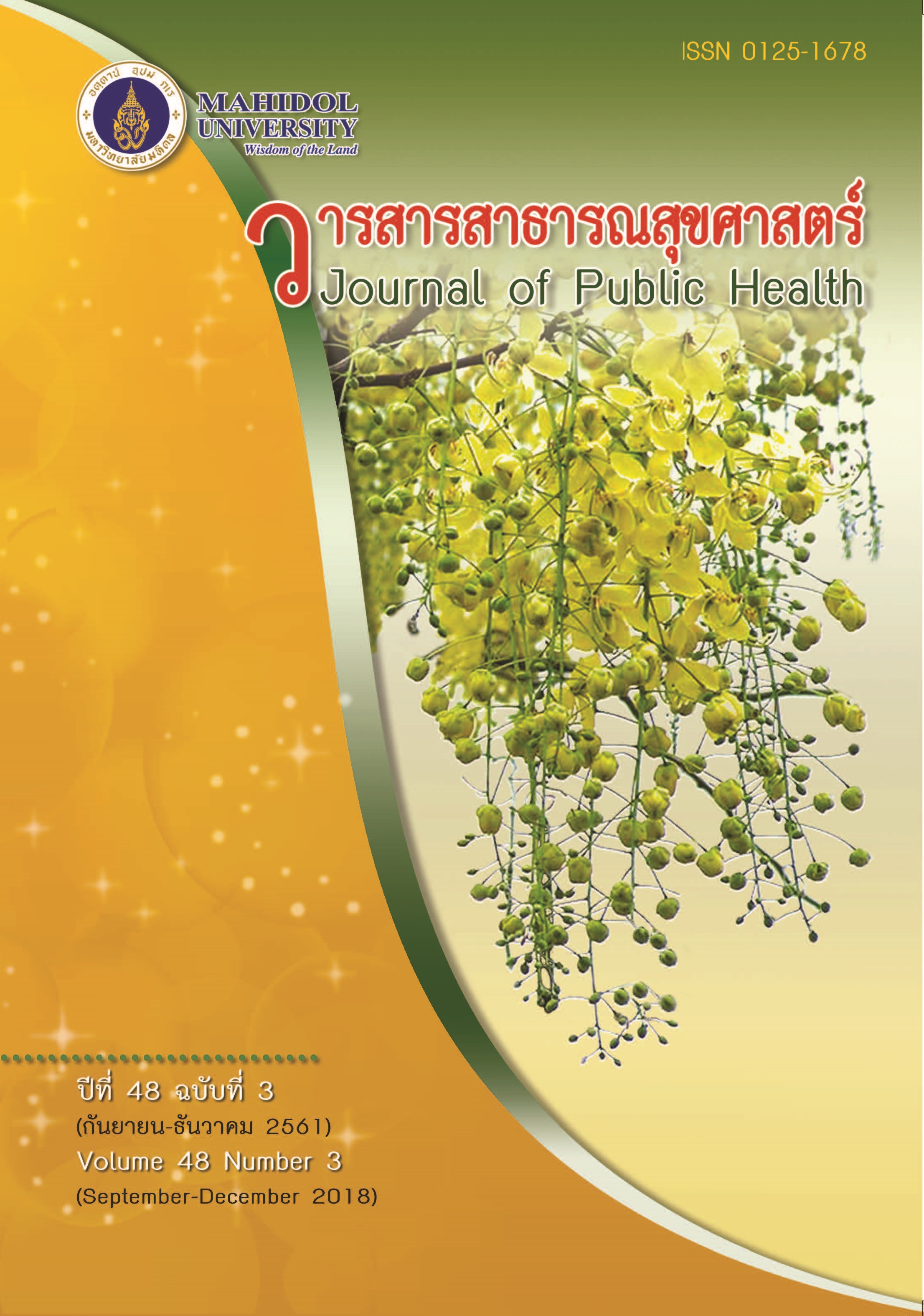- Effects of Case Management Program for Older Adults with End Stage Cancer in the Community
-
Keywords:
older adults, end stage cancer, case managementAbstract
Cancer can cause patients physical and mental stress, so a quasi-experimental pretest-posttest study was conducted to evaluate the effects of a case management program on older adults with end stage cancer. A total of 60 older adults, registered at the Home Health Care Unit, Ramathibodi Hospital from February 2017 to May 2017 were randomly assigned to an experimental or comparison group 30 subjects each group. Those from the experimental group received a case management program consisting of health education regarding disease and end of life care, skill development for symptom management, supportive self-care, home visits and telephone follow-up. The comparison group received standard home health care. The Pair t-test and Independent t-test, revealed the experimental group had no significantly different mean scores regarding quality of life than before the experiment. However, mean scores concerning social/family well-being and emotional well-being were higher than before the experiment and higher than that of the comparison group (p<0.001). Moreover, the experimental and comparison groups had higher mean ESAS scores than before the experiment, but without significant difference between groups. Furthermore, the experimental group exhibited fewer depressive and anxiety symptoms than before the experiment and fewer than the comparison group (p<0.05). These findings could be applied to develop a multidisciplinary care plan for older adults with end stage cancer in a community to improve their quality of life and decrease their discomfort.
Downloads
Published
Issue
Section
License
Creative Commons License CC-BY-ND


